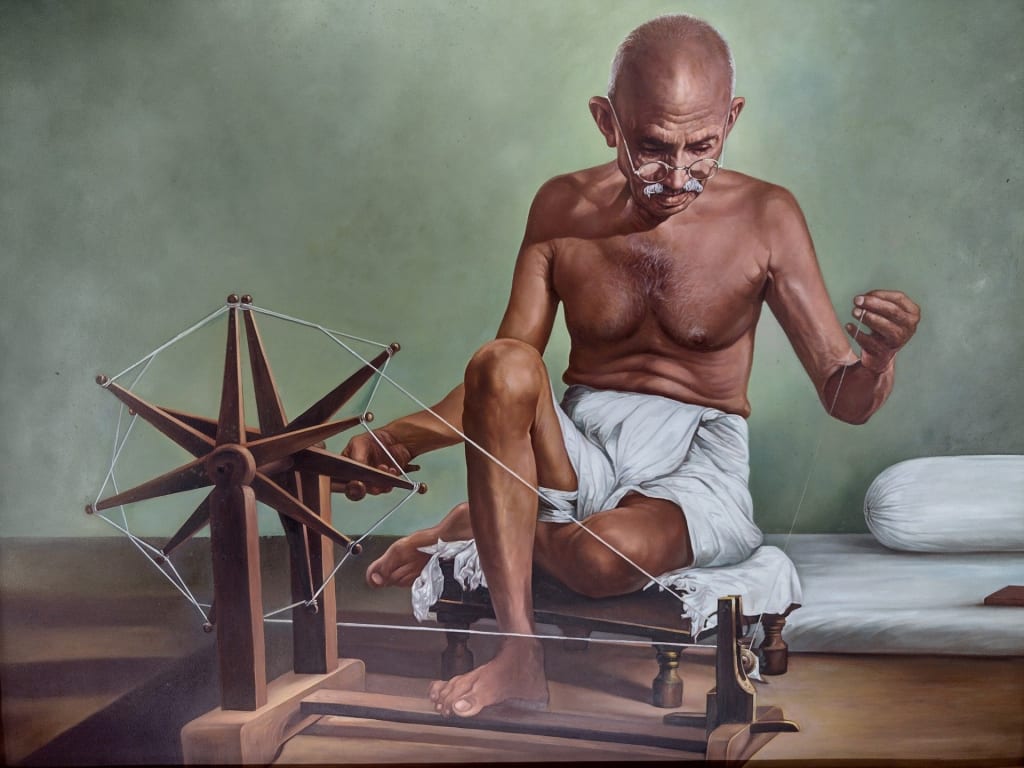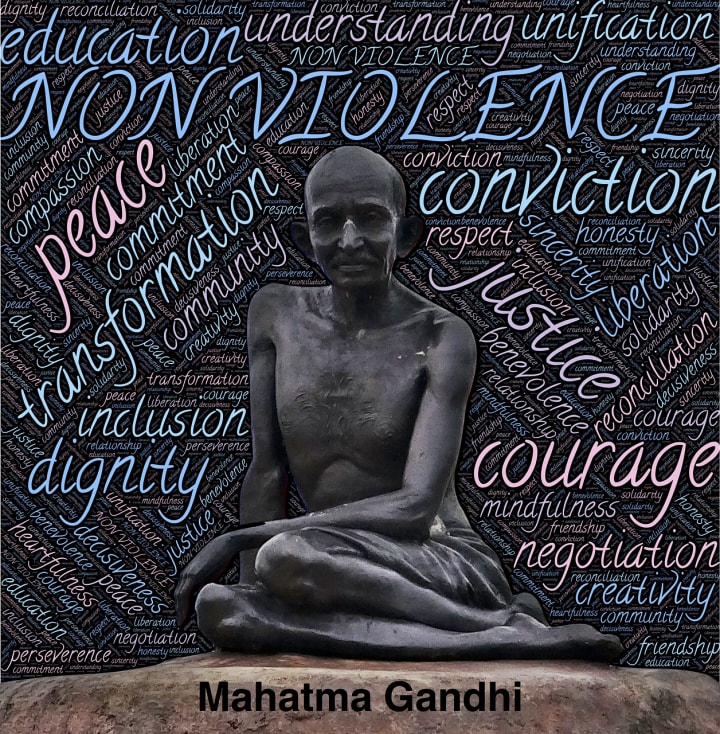Mahatma Gandhi Essay In English
Mahatma Gandhi Essay In 100 and 500 Words : Mahatma Gandhi and his impact on Indian independence and the world

Mahatma Gandhi Essay in 100 words
Mahatma Gandhi, also known as "Father of the Nation" in India, was a leader of the Indian independence movement against British rule. He was a political and spiritual leader who advocated for non-violent civil disobedience and was a key figure in India's struggle for freedom. Through his philosophy of satyagraha, Gandhi inspired movements for civil rights and freedom across the world. His principles of non-violence, truth, and self-reliance continue to inspire individuals and communities to this day. His legacy lives on as a symbol of hope, peace, and freedom for people all over the world.

Mahatma Gandhi Essay in 500 words
Mahatma Gandhi, also known as "Father of the Nation" in India, was a leader of the Indian independence movement against British rule. He was a political and spiritual leader who advocated for non-violent civil disobedience and was a key figure in India's struggle for freedom. Through his philosophy of satyagraha, Gandhi inspired movements for civil rights and freedom across the world.
Gandhi was born in 1869 in British-ruled India and studied law in London. He returned to India in 1915 and began working as a lawyer but soon became involved in the Indian independence movement. He quickly rose to prominence as a leader of the Indian National Congress and began advocating for non-violent resistance against British rule. Gandhi believed in the power of peaceful protest and advocated for civil disobedience, such as boycotting British goods and refusing to pay taxes.
Gandhi's philosophy of satyagraha, or "truth force," was a central part of his philosophy and tactics. It was based on the idea that individuals have the power to effect change through peaceful resistance and non-violent action. This philosophy was put into practice during the Salt March of 1930, in which Gandhi led a march of thousands of Indians to the sea to make their own salt, defying British laws that controlled the salt trade. The march was a major success and helped to galvanize the Indian independence movement.
Gandhi's tactics of non-violence and civil disobedience not only helped to secure Indian independence but also inspired similar movements around the world. His philosophy influenced leaders such as Martin Luther King Jr. and Nelson Mandela in their struggles for civil rights and freedom.
Gandhi's principles of non-violence, truth, and self-reliance continue to inspire individuals and communities to this day. He believed in living a simple and austere lifestyle and advocated for self-sufficiency and the use of traditional Indian crafts and industries. He also believed in the importance of education and worked to promote literacy and education for all Indians.
Mahatma Gandhi's life and work had an enormous impact on the world and his legacy continues to inspire people to this day. He is remembered for his unwavering commitment to non-violence and his ability to bring about political change through peaceful means. He remains an iconic figure, a symbol of hope, peace, and freedom for people all over the world.
Gandhi's contributions to the Indian independence movement and his philosophy of non-violence are still widely admired and studied today. His teachings continue to inspire many people around the world who are working for peace and justice. He is considered as one of the greatest leaders in history. His principles of non-violence, truth, and self-reliance continue to be relevant today, and his legacy continues to inspire people around the world to work for peace and justice.
Conclusion:
In conclusion, Mahatma Gandhi was a political and spiritual leader who played a key role in India's struggle for freedom from British rule. His philosophy of non-violence and civil disobedience inspired movements for civil rights and freedom across the world. His principles of non-violence, truth, and self-reliance continue to inspire individuals and communities to this day. His legacy lives on as a symbol of hope, peace, and freedom for people all over the world. He remains an iconic figure and an inspiration for many who strive for peace and justice.
About the Creator
Enjoyed the story? Support the Creator.
Subscribe for free to receive all their stories in your feed. You could also pledge your support or give them a one-off tip, letting them know you appreciate their work.





Comments
There are no comments for this story
Be the first to respond and start the conversation.